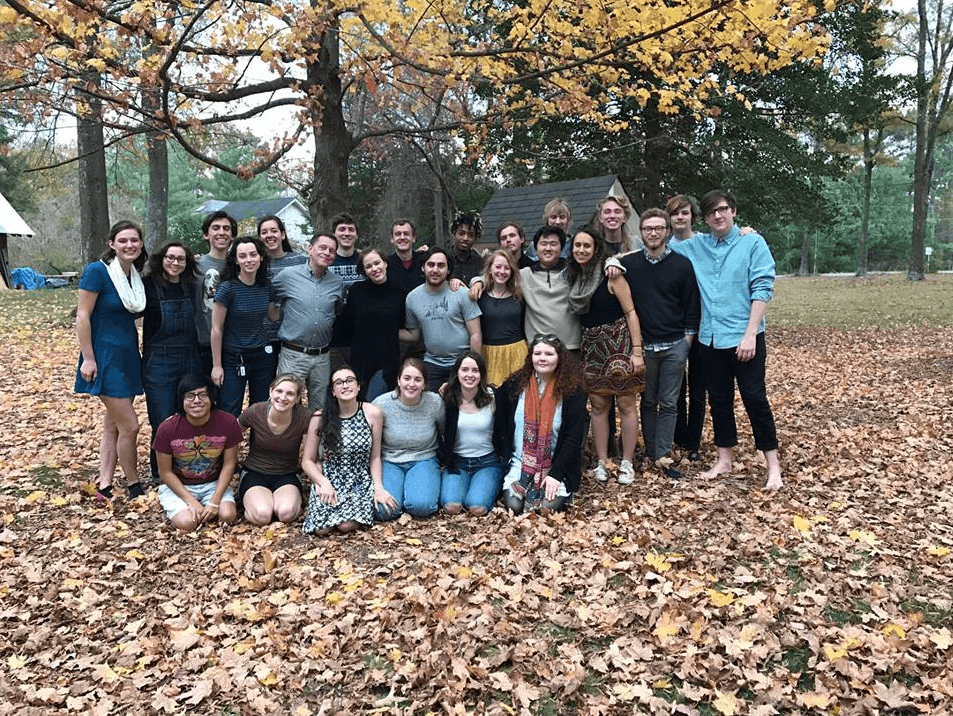Students starting to join conversations against Atlantic Coast Pipeline
3 min read
Brad V. | Virginia Student Enviornmental Coalition
By MADISON REID
This December, the Department of Mines Minerals and Energy is releasing new regulations regarding the Atlantic Coast Pipeline. In suspense of the release, select students at the University of Mary Washington became concerned with the potential negative effects of this pipeline. The proposed pipeline, is said to cut through Virginia, West Virginia and North Carolina, and will be funded by Dominion Power. Currently this pipeline is on hold waiting for the updated list of regulations.
Sarah Kinzer, junior English major, found out about the proposed pipeline through fellow students working to support the ‘anti-pipeline’ effort. After becoming aware of the possible impacts, Kinzer developed some concerns. “Its construction would mark an open disregard for the health and safety. The pipeline is yet another step backwards in the fight to end our dependence on fossil fuels,” Kinzer said.
She believes that students are fighting against this, acting both on and off campus. For example, she knows students from the Virginia Commonwealth University who have created a documentary to specifically highlight the impact this would have on Bath County.
Recently, at the University of Mary Washington, a panel was held in the Chandler Ballroom, hosted by the Sierra Club, who wanted to start a discussion on campus regarding the pipeline. Students and residents of the area were welcomed to attend.
“The number of students who are aware about the pipeline and the threat it carries is small, but growing,” Kinzer said. The recent publicity surrounding the fight of the North Dakota Access Pipeline has caught many people’s attention, causing them to become more aware of the negative ramifications of this proposed pipeline.
Bradley Veerhoff, a sophomore double majoring in math and English, found out about the Atlantic Coast Pipeline through his work with the Virginia Student Environmental Coalition. His concerns are similar to Kinzer’s, however, Veerhoff is also worried about the damage caused by infrastructure on communities and what it means for the economy.
As a student, he has yet to get involved on the campus, although he’s been doing “a recruitment campaign for VSEC, which runs a no infrastructure campaign as well.” Veerhoff believes that students are not as involved as they could be. He suggested that “college kids are really busy between school, work and making money to pay for said things.” He said that if they were given better resources to become a part of the “no pipeline” campaign, they could possibly do more.
Senior geography major, Courtney Fauno, is an intern for the Sierra Club. She chose to apply for this internship to gain experience for a potential career in the environmental field.
“The best way to get good hands on experience was to start at the local level and tackling problems happening in [her] community,” Fauno said.
Other than the Sierra Club itself, Fauno isn’t doing much to get involved with the issue. However, she will be attending a Stand with Standing Rock march in Washington D.C., on Dec. 10, at 2 p.m. Fauno thinks that her fellow students should follow suit and come to the march as well. If students have yet to become involved with the pipeline issue, this would be one place to start, according to Fauno.
Student experiences surrounding this pipeline are mostly independent from the UMW campus. However, there are occasional opportunities for involvement around campus, such as the panel that the Sierra Club hosted. While students agreed that there is a lack of involvement on campus, there is still the potential for the university to become a part of the Atlantic Coast Pipeline movement.












Thanks to all the students who are spreading awareness about the dangers of the Atlantic Coast Pipeline.